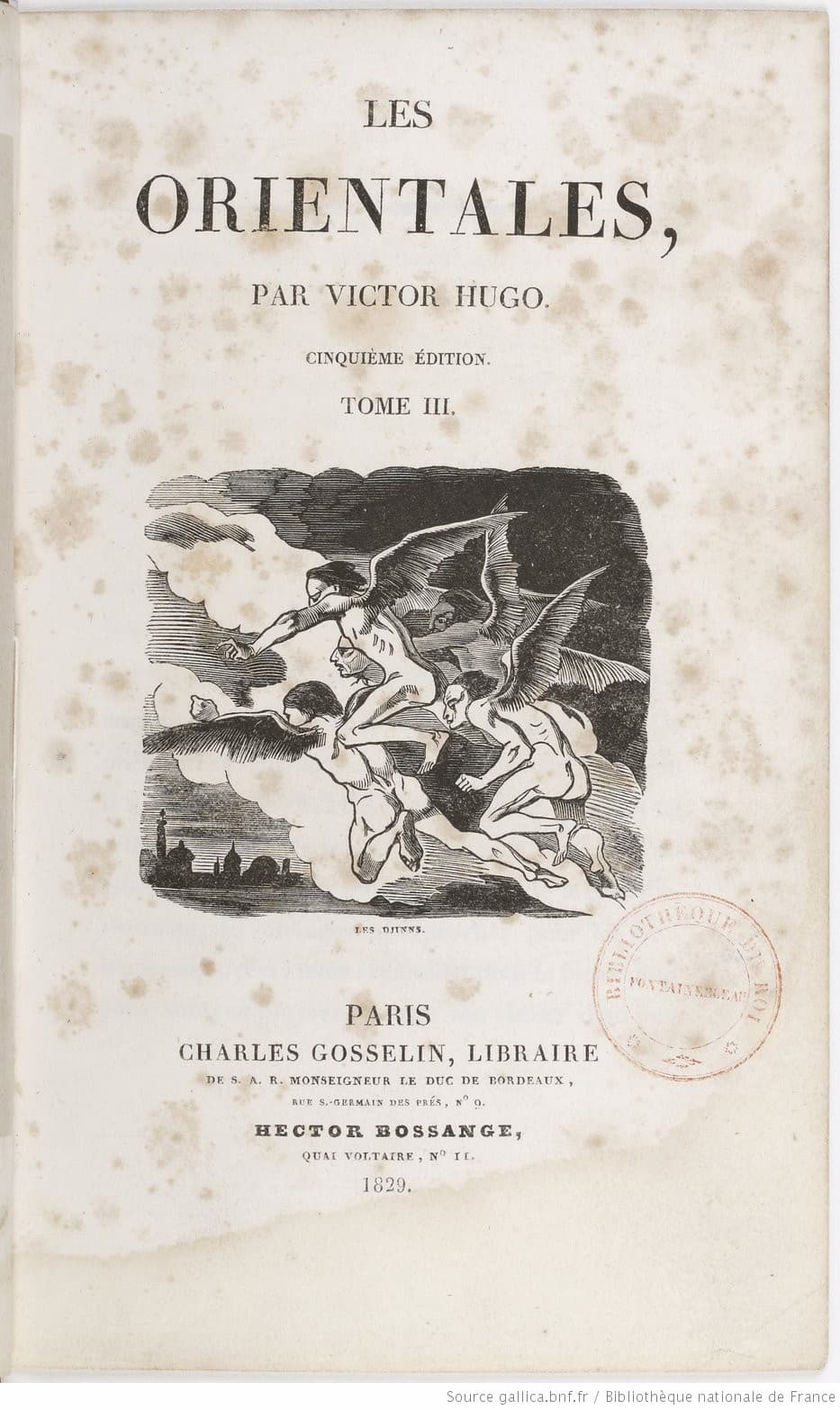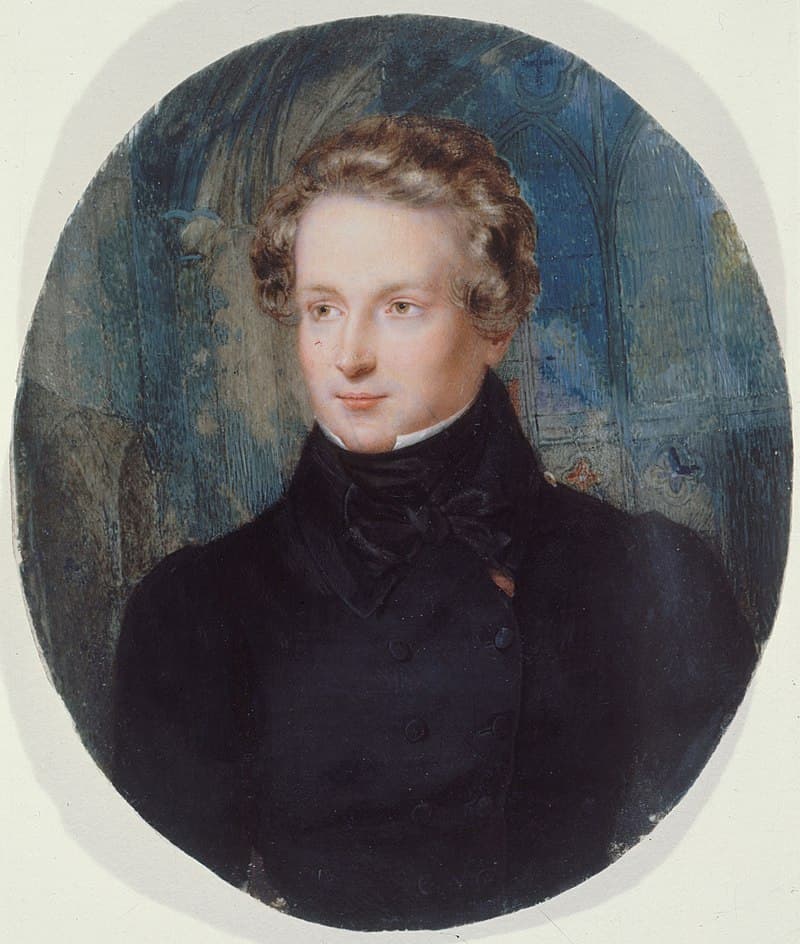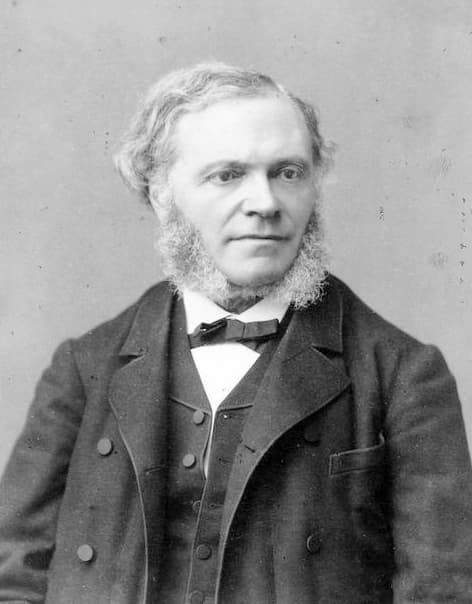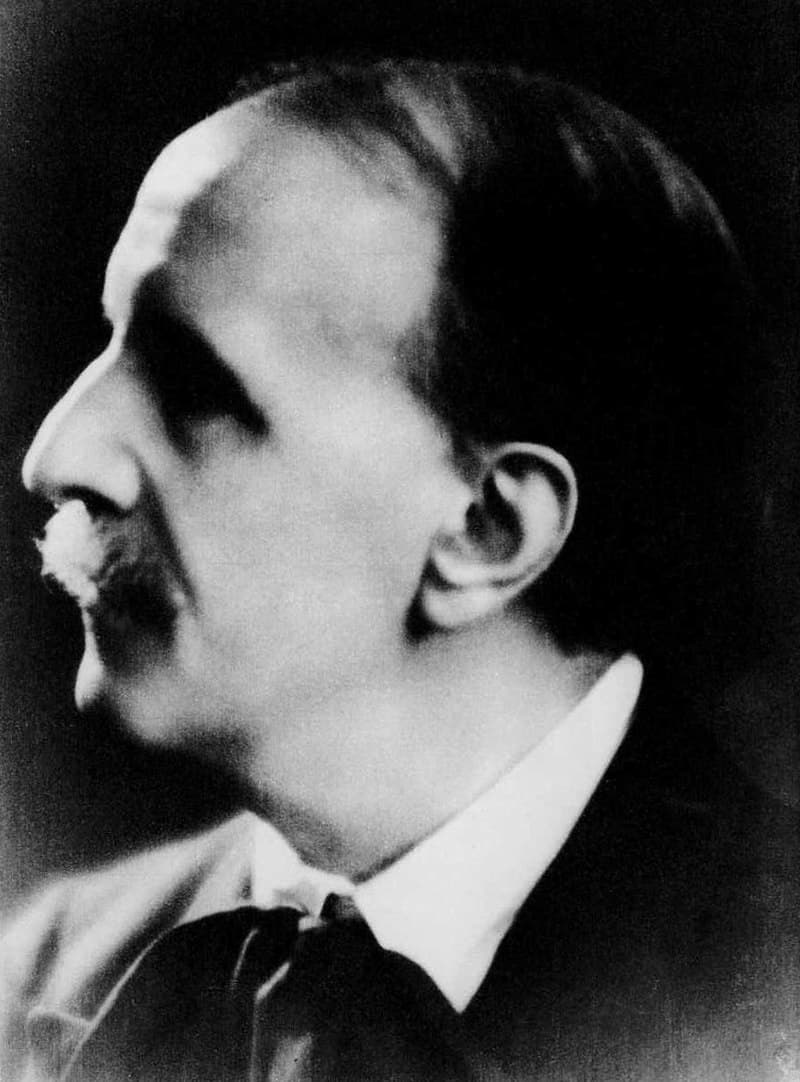Victor Hugo’s 1829 poetry collection, Les Orientales, was inspired by the Greek War of Independence, where, between 1821 and 1829, the Greeks worked to overthrow the Ottoman Empire. Assisted by the British, the French, and the Russians, the Greeks overthrew the rulers they’d had since the 15th century. It was the start of the modern Greek state and made Greece what we know today.

Victor Hugo: Works, vol. 3: Les Orientales (Paris: Charles Gosselin, 1829)
The poems in Hugo’s collection did not shy from making the contrast between the ‘freedom-loving Greeks and imperialist Ottoman Turks’, and the work’s general celebration of the idea of liberty had resonance with the biases of the French public.

Jean Alaux: Victor Hugo, 1825 (Maison de Victor Hugo – Hauteville House)
The 28th poem in the 41-poem collection became Hugo’s most famous: Les Djinns. Each verse of the poem has a growing then shrinking number of syllables: 2,3,4,5,6,7,8,10, and then back down again to 2. This unique structure underlined the story, which was about the passage of a swarm of djinns around the speaker’s house. The speaker calls on the Prophet to save him and so the cloud passes.
Camille Saint-Saëns pointed out the poem to Gabriel Fauré who set it as a choral work in 1875. In just three minutes, the djinns come and go in a very precise setting of the text. Hugo’s stylistic expansion and contraction of the poem’s lines are set with tremendous effect.

Emile Tourtin: Gabriel Fauré, 18755 (Bibliothèque nationale)
Gabriel Fauré: Les Djinns, Op. 12 (Ensemble Vocal Alix Bourbon; Toulouse Capitol Orchestra; Michel Plasson, cond.)
| Les Djinns | The djinns |
| Murs, ville, | Walls, city, |
| Et port, | And port, |
| Asile | Asylum |
| De mort, | Of death, |
| Mer grise | gray sea |
| Où brise | where breeze |
| La brise, | The breeze, |
| Tout dort. | Everything sleeps. |
| Dans la plaine | In the plain |
| Naît un bruit. | A noise is born. |
| C’est l’haleine | It’s the breath |
| De la nuit. | Of the night. |
| Elle brame | It roars |
| Comme une âme | Like a soul |
| Qu’une flamme | that a flame |
| Toujours suit! | Always follows! |
| La voix plus haute | The higher voice |
| Semble un grelot. | seems like a bell. |
| D’un nain qui saute | Of a jumping dwarf |
| C’est le galop. | It’s the gallop. |
| Il fuit, s’élance, | He flees, rushes, |
| Puis en cadence | Then in rhythm |
| Sur un pied danse | On one foot dances |
| Au bout d’un flot. | At the end of a flow. |
| La rumeur approche. | The rumor approaches. |
| L’écho la redit. | The echo repeats it. |
| C’est comme la cloche | It’s like the bell |
| D’un couvent maudit ; | From a cursed convent; |
| Comme un bruit de foule, | Like a noise of a crowd, |
| Qui tonne et qui roule, | That thunders and rolls, |
| Et tantôt s’écroule, | And sometimes collapses, |
| Et tantôt grandit. | And sometimes grows, |
| Dieu ! la voix sépulcrale | God! the sepulchral voice |
| Des Djinns !… Quel bruit ils font ! | Of the djinns!… What a noise they make! |
| Fuyons sous la spirale | Let’s flee under the spiral |
| De l’escalier profond. | of the deep staircase. |
| Déjà s’éteint ma lampe, | My lamp is already extinguished, |
| Et l’ombre de la rampe, | And the shadow of the ramp, |
| Qui le long du mur rampe, | which along the wall crawls, |
| Monte jusqu’au plafond. | Goes up to the ceiling. |
| C’est l’essaim des Djinns qui passe, | It’s the swarm of Djinns that passes, |
| Et tourbillonne en sifflant ! | And whirls whistling! |
| Les ifs, que leur vol fracasse, | The yews, which their flight smashes, |
| Craquent comme un pin brûlant. | Crack like a burning pine. |
| Leur troupeau, lourd et rapide, | Their herd, heavy and fast, |
| Volant dans l’espace vide, | Flying in empty space, |
| Semble un nuage livide | Seems like a livid cloud |
| Qui porte un éclair au flanc. | With a lightning bolt on its side. |
| Ils sont tout près ! – Tenons fermée | They are close! – Close the door |
| Cette salle, où nous les narguons. | To this room, where we tease them. |
| Quel bruit dehors ! Hideuse armée | What a noise outside! hideous army |
| De vampires et de dragons ! | Of vampires and dragons! |
| La poutre du toit descellée | The loose roof beam |
| Ploie ainsi qu’une herbe mouillée, | Bends like wet grass, |
| Et la vieille porte rouillée | And the rusty old door |
| Tremble, à déraciner ses gonds! | Trembles, about to lose its hinges! |
| Cris de l’enfer! voix qui hurle et qui pleure! | Cries from hell! Voices that scream and cry! |
| L’horrible essaim, poussé par l’aquilon, | The horrible swarm, pushed by the north wind, |
| Sans doute, ô ciel ! s’abat sur ma demeure. | No doubt, oh heaven! falls on my house. |
| Le mur fléchit sous le noir bataillon. | The wall gives way under the black battalion. |
| La maison crie et chancelle penchée, | The house cries out and staggers leaning, |
| Et l’on dirait que, du sol arrachée, | And it seems that, from the ground uprooted, |
| Ainsi qu’il chasse une feuille séchée, | As it hunts a dried leaf, |
| Le vent la roule avec leur tourbillon ! | The wind rolls it with their whirlwind! |
| Prophète ! si ta main me sauve | Prophet! if your hand saves me |
| De ces impurs démons des soirs, | From these impure evening demons, |
| J’irai prosterner mon front chauve | I will bow down my bald forehead |
| Devant tes sacrés encensoirs ! | Before your sacred censers! |
| Fais que sur ces portes fidèles | Put your hand on these faithful doors |
| Meure leur souffle d’étincelles, | So that their breath dies in sparks, |
| Et qu’en vain l’ongle de leurs ailes | And in vain the claws on their wings |
| Grince et crie à ces vitraux noirs ! | Creak and cry at those black glass windows! |
| Ils sont passés ! – Leur cohorte | They passed! – Their cohort |
| S’envole, et fuit, et leurs pieds | Fly, and flee, and their feet |
| Cessent de battre ma porte | Stop beating on my door |
| De leurs coups multipliés. | with their multiple blows. |
| L’air est plein d’un bruit de chaînes, | The air is full of the noise of chains, |
| Et dans les forêts prochaines | And in the next forests |
| Frissonnent tous les grands chênes, | All the great oaks quiver, |
| Sous leur vol de feu pliés! | Beneath their bent fiery flight! |
| De leurs ailes lointaines | From their distant wings |
| Le battement décroît, | The beat decreases, |
| Si confus dans les plaines, | So confused in the plains, |
| Si faible, que l’on croit | So weak, that we believe |
| Ouïr la sauterelle | We can hear the grasshopper |
| Crier d’une voix grêle, | Cry in a thin voice, |
| Ou pétiller la grêle | Or crackle the hail |
| Sur le plomb d’un vieux toit. | On the lead of an old roof. |
| D’étranges syllabes | Strange syllables |
| Nous viennent encor ; | Come to us again; |
| Ainsi, des arabes | Thus, of the Arabs |
| Quand sonne le cor, | When the horn sounds, |
| Un chant sur la grève | A song on the shore |
| Par instants s’élève, | At times rises, |
| Et l’enfant qui rêve | And the child who dreams |
| Fait des rêves d’or. | Dreams of gold. |
| Les Djinns funèbres, | Funeral Djinns, |
| Fils du trépas, | Son of Death, |
| Dans les ténèbres | In the darkness |
| Pressent leurs pas; | Hurry their steps; |
| Leur essaim gronde: | Their swarm rumbles: |
| Ainsi, profonde, | Thus, deep |
| Murmure une onde | Whispers a wave |
| Qu’on ne voit pas. | That one doesn’t see. |
| Ce bruit vague | This vague noise |
| Qui s’endort, | that falls asleep, |
| C’est la vague | It’s the wave |
| Sur le bord; | On the edge; |
| C’est la plainte, | This is the lament |
| Presque éteinte, | Almost beyond hearing, |
| D’une sainte | Of a saint |
| Pour un mort. | For someone dead. |
| On doute | We doubt |
| La nuit… | The night… |
| J’écoute : | I listen: |
| -Tout fuit, | -Everything flees |
| Tout passe | Everything passes |
| L’espace | Space |
| Efface | Erases |
| Le bruit. | The noise. |
In 1884, César Franck took up the text, setting it as a symphonic poem. Without the words, the orchestral setting, with piano solo, loses the urgency of both the poem and Fauré’s setting.

Pierre Petit: César Franck
César Franck: Les Djinns, M. 45 (Vladimir Ashkenazy, piano; Deutsches Symphonie-Orchester Berlin; Vladimir Ashkenazy, cond.)

Louis Vierne, 1910
In 1912, Louis Vierne set the poem for voice and orchestra. It’s a more leisurely setting than Fauré’s but is successful at conveying the urgent buildup to the djinn’s arrival and the saving hand of the Prophet that rescues the believers.
Louis Vierne: Les Djinns, Op. 35
It’s a remarkable poem with three distinctive settings. The words make the music sing and move the audience to be part of the story. Think of this next time you’re in extreme weather, is it wind or rain – or is it the djinns?
For more of the best in classical music, sign up to our E-Newsletter

